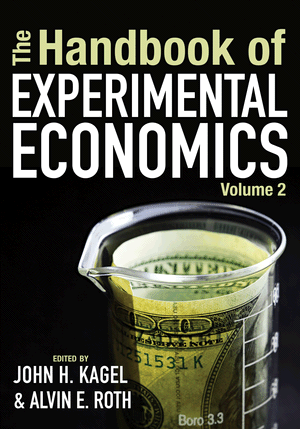Gonzalo Arrieta defended his dissertation last week.
Here's his job market paper:
Procedural Decision-Making In The Face OfComplexity by Gonzalo Arrieta and Kirby Nielsen
Abstract: A large body of work documents that complexity affects individuals’ choices, but the literature has remained mostly agnostic about why. We provide direct evidence that individuals use different choice processes for complex and simple decisions. We hypothesize that individuals resort to “procedures”—cognitively simpler choice processes that we characterize as being easier to describe to another person—as the complexity of the decision environment increases. We test our hypothesis using two experiments, one with choices over lotteries and one with choices over charities. We exogenously vary the complexity of the decision environment and measure the describability of choice processes by how well another individual can replicate the decision-maker’s choices given the decision-maker’s description of how they chose. We find strong support for our hypothesis: Both of our experiments show that individuals’ choice processes are more describable in complex choice environments, which we interpret as evidence that decision-making becomes more procedural as complexity increases. We show that procedural decision-makers choose more consistently and exhibit fewer dominance violations, though we remain agnostic about the causal effect of procedures on decision quality. Additional secondary evidence suggests that procedural decision-making is a choice simplification that reduces the cognitive costs of decision-making."
Abstract: The dominant approach to welfare is based on revealed preferences and thus is restricted to settings where the individual knows their preferences have been fulfilled. We use a choosing-for-others framework to experimentally study welfare when what the individual believes to be true differs from what is actually true. About 42% of participants see welfare as independent of beliefs; 22% see welfare as only depending on beliefs; and 29% see a lower, but still positive, welfare effect when beliefs are fixed. Furthermore, the average participant values accurate beliefs. Our results suggest most people support the idea that welfare goes beyond awareness, which can inform media regulation, informational policies, and government communication.
Here's a figure from the instructions about the creation of "real" and "fake" inscribed copies of books. A third party judged the welfare to the recipient













